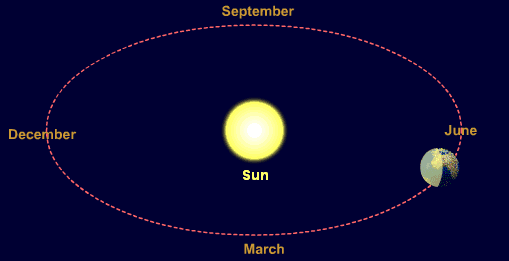Jehovah's Witnesses in my Living Room. pt 2
Yesterday, I began a story about a pair of Jehovah's Witnesses in my living room. I finished yesterday's post after I scolded the gentleman for making the ridiculous claim that scientists don't believe in the Big Bang Theory anymore. /facepalm
He tried the First Cause argument. He tried dismissing the Big Bang Theory. It was time to pull out another awful argument.
JW: When we look out into the Universe, we find that our world is the only place which could sustain life.
I explained to him that I have three problems with that statement:
1) It assumes that the only life which COULD exist is exactly like us.
You're ignoring the possibility that other types of life could exist which wouldn't have the same requirements that we, as humans, do. Without our temperature limitations, need for air, etc. then the list of potential planets which could support life is essentially infinite. In fact, NASA announced the discovery of a slightly different form of life right here on Earth. All life as we know it, at least before the discovery of this new life, is based on 6 basic elements: Carbon, Hydrogen, Nitrogen, Oxygen, Phosphorus and Sulfer. However, this newly discovered bacterium doesn't use Phosphorous, it uses Arsenic. Arsenic is POISON to us, but to this slightly different form of life? No problem.
2) Not having found a planet which could sustain life only means that we haven't found one.
It doesn't mean there isn't one. We'll keep looking. We haven't yet been able to detect a Black Hole, but we understand the physics needed to create them and we understand indirect ways of observing them and we're looking for evidence. Likewise, we understand the physics needed to form planets and the requirements for life, similar to us, and so we can search for planets that are likely to fit those requirements. A certain sized star, a certain range in the distance between the planet and the star, temperature, etc.
3) We HAVE found at least one planet which looks like it could fit the requirements to support life similar to us.
From NPR and All Things Considered in 2011, Found: Earth-Like Planet That Might Be Right For Life:
Scientists have discovered a planet not too much bigger than Earth that's circling a distant star that's much like our own sun. What's more, this planet is in the "Goldilocks zone" around that star — a region that's not too hot and not too cold. That's the kind of place that could be home to liquid water and maybe even life.
The planet, known as Kepler-22b, is the first near-Earth-sized planet to be found smack dab in the middle of the habitable zone of a twin to our Sun.
Ok, but sure, one planet which only might support life? Ok, ok, how about these other two Earth-Like planets announced in 2013?
Scientists have found two planets that are more like Earth in size and temperature than anything that’s ever been seen, a discovery made with help from astronomers at San Diego State University.
The Kepler Telescope spotted the planets circling a star in constellation Lyra, in the so-called “habitable zone,” a region where it is possible for water to exist on the surface if a planet has enough atmospheric pressure. Some scientists call these “Goldilocks” planets because they aren’t too close or too far from their sun to rule out the presence of water.
Just like these kinds of folks always do, when presented with evidence that invalidated his arguments, he ignored the fact that we have found planets which theoretically could support our kind of life and pivoted to a different facet of the same horrible argument.
JW: When you look at our own planet though, you can see just how well it was designed for us. Even the orbit of the Earth around the Sun shows this! If our orbit was off by even 2 or 3%, then our planet wouldn't be able to sustain life.
Me: Are you aware that the Earth's orbit around the Sun is not circular?
JW: Yes, it's not a circle, it's an ellipse.
Me: Correct. *walks to the whiteboard* So, if this is the Sun and this is the elliptical orbit of the Earth, do you see that at this point we're closer to the Sun than we are at this point?
JW: Well, yeah, but...
Me: Wait, let me ask you another question. How big is the difference between these two distances?
JW: I don't know.
Me: Then how can you sit here and tell me that if the orbit was 2-3% off from where it is that the Earth wouldn't be able to sustain life? If you know that it does fluctuate, but you don't know how much it fluctuates, then how in the world can you possibly know that 2-3% difference would prevent life on this planet? You're just repeating the information that has been given to you by The Society, but you're not checking to see if they are lying to you. You're just blindly following them instead of using your brain.
Do you want to know HOW I know you aren't checking?
JW: ...
Me: It's because the difference in the those distances from the Sun IS ABOUT 3%. It fluctuates 3%, back and forth, every 3 months and we're all just fine.
The argument he was trying to use is called the Fine Tuning argument. It tries to claim that since the world/universe fits us so well, then it must have been made specifically for us. That's a load of nonsense and it ignores the simple idea that we fit the world instead of the world fitting us. Right? This world can easily support carbon-based, water-dependent, air-breathing animals and so therefore the humans you find on this planet are carbon-based, water-dependent, and air-breathing.
For the most eloquent destruction of the Fine Tuning argument I have ever heard, I give you one of the greatest authors of my lifetime:
Imagine a puddle waking up one morning and thinking,
"This is an interesting world I find myself in - an interesting hole I find myself in - fits me rather neatly, doesn't it? In fact it fits me staggeringly well, must have been made to have me in it!"
This is such a powerful idea that as the sun rises in the sky and the air heats up and as, gradually, the puddle gets smaller and smaller, it's still frantically hanging on to the notion that everything's going to be alright, because this world was meant to have him in it, was built to have him in it; so the moment he disappears catches him rather by surprise.
I think this may be something we need to be on the watch out for. We all know that at some point in the future the Universe will come to an end and at some other point, considerably in advance from that but still not immediately pressing, the sun will explode. We feel there's plenty of time to worry about that, but on the other hand that's a very dangerous thing to say.
- Douglas Adams
I explained that we evolved to fit the world and not vice versa. To which, he replied that the Fossil Record does not support that idea. *sigh* I asked him why he thought that.
JW: The Fossil Record clearly shows lots and lots of species all suddenly appearing. It doesn't show small change after change after change.
Me: Can you tell me specifically what you mean by "suddenly?"
JW: It all happened in a short period of time. It doesn't show that dogs became something else, it shows that dogs always stayed dogs.
Me: Well, that's not true and the Fossil Record doesn't show that, but let me ignore that for the moment, because I really want to talk about what you mean by "suddenly." I believe I know what you are talking about, but I'm not sure you really do. When you say that a bunch of species all appeared "suddenly", are you referring to the Cambrian Explosion?
JW: Yes! See, the Fossil Record...
Me: Hold up there a second. Do you know how long a period of time is described by the "Cambrian Explosion?"
JW: Not specifically, no.
Me: The Cambrian "Explosion" took place over like 70 MILLION YEARS. You have to understand that the people who were using words like "suddenly" or "explosion" were geologists who deal with geological timescales. The Earth has existed for more than 4 BILLION YEARS so when you compare 70 million to 4 billion... yeah, it's kind of "sudden." Beyond that, the Cambrian Explosion took place HUNDREDS OF MILLIONS OF YEARS AGO. Not only is 70 million years such a staggeringly long time that our brains can't truly comprehend it, that period of 70 million years happened an even staggeringly longer time ago. The people who are teaching you about science and about evolution do not understand science nor do they understand evolution.
At this point, the lady poked him and said, "I think we should probably head out. The group is probably waiting for us."
I really hope they come back with one of the Elders of the local congregation. That would be a lot fun. ;)


